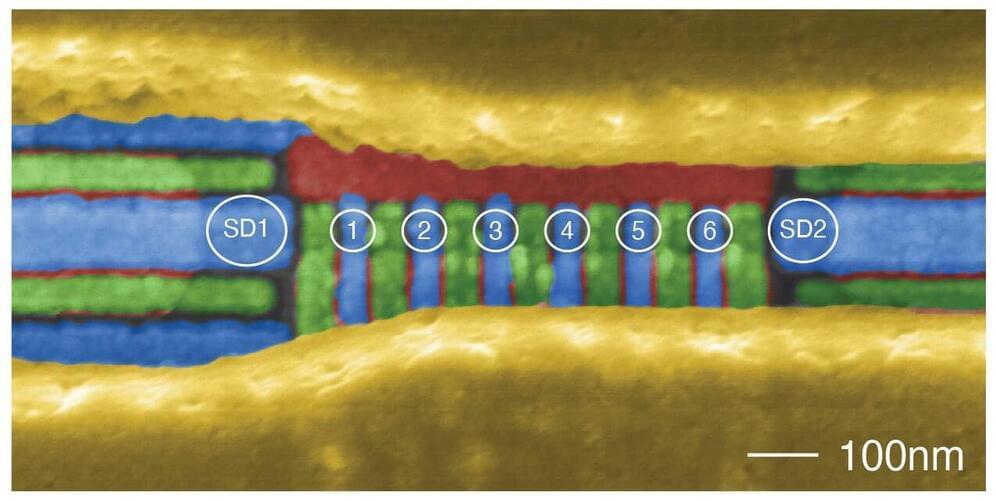Researchers at QuTech—a collaboration between the Delft University of Technology and TNO—have engineered a record number of six, silicon-based, spin qubits in a fully interoperable array. Importantly, the qubits can be operated with a low error-rate that is achieved with a new chip design, an automated calibration procedure, and new methods for qubit initialization and readout. These advances will contribute to a scalable quantum computer based on silicon. The results are published in Nature today.
Different materials can be used to produce qubits, the quantum analog to the bit of the classical computer, but no one knows which material will turn out to be best to build a large-scale quantum computer. To date there have only been smaller demonstrations of silicon quantum chips with high quality qubit operations. Now, researchers from QuTech, led by Prof. Lieven Vandersypen, have produced a six qubit chip in silicon that operates with low error-rates. This is a major step towards a fault-tolerant quantum computer using silicon.
To make the qubits, individual electrons are placed in a linear array of six “quantum dots” spaced 90 nanometers apart. The array of quantum dots is made in a silicon chip with structures that closely resemble the transistor—a common component in every computer chip. A quantum mechanical property called spin is used to define a qubit with its orientation defining the 0 or 1 logical state. The team used finely-tuned microwave radiation, magnetic fields, and electric potentials to control and measure the spin of individual electrons and make them interact with each other.
